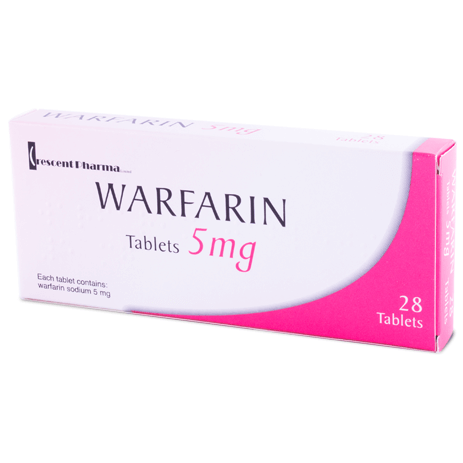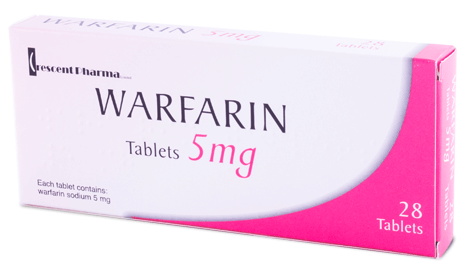One of the longest standing drugs in cardiology is warfarin. Warfarin is an extremely effective blood thinner which has been in use for decades. It effectively stops clots forming in people with cardiac valve replacements & in those with the very common electrical abnormality in the heart, atrial fibrillation. In atrial fibrillation, because the chamber is not contracting properly, there is sluggish flow and clots may form. If these formed clots dislodge, they may travel to the brain leading to a stroke.
Warfarin has been shown in a number of studies to significantly reduce stroke risk. But, it is a difficult drug to take because it requires regular blood monitoring and has significant interactions with many other drugs and certain types of food and supplements. Also, because of warfarin?s actions in blocking the vitamin K dependent clotting factors, there is a somewhat higher risk of osteoporosis in people taking warfarin.
Also, one of the great stigmas of warfarin is that many ill-informed people call it ratsack. There is a rat poison which contains lethal doses of the active component of warfarin. When rats ingest this poison, they have a lethal bleed.
 image source: http://www.crescentpharma.com/
image source: http://www.crescentpharma.com/
I make the very strong analogy here with paracetamol. If you have a headache and I give you two paracetamol, I typically take away your headache. If, however, I give you the entire box then you will die from liver failure. So, paracetamol is just as much a poison as warfarin but for some strange reason doesn?t carry this stigma.
I have had multiple patients on warfarin for many years who have been very well-controlled and have shown absolutely no signs of poisoning because they have taken the medication at therapeutic doses.
There is also another commonly used drug in cardiology known as Digoxin (again this has been around for years). In therapeutic doses this is an effective drug at controlling heart rhythm disorders but in toxic doses can cause serious digitalis poisoning. There are common symptoms of this such as loss of appetite, nausea, visual disturbances and even confusion, but well trained medical practitioners detect these problems early and organise appropriate blood tests to confirm the diagnosis.
A recent study published in JAMA Internal Medicine examined warfarin?s ability to block a particular enzyme (AXL receptor tyrosine kinase) which may halt the spread of cancer cells. The study reviewed data from the Norwegian national registry looking at just over 1,250,000 individuals born in Norway between 1924 to 1954 with a 50?50 sex distribution. This well done study examined warfarin use between January 2004 to December 2012 of which just under 93,000 people were taking warfarin; clearly, a commonly used drug. Interestingly, the individuals taking warfarin had a 16% reduction in the risk of all cancers compared with those people who did not use the drug. There was a 31% reduced risk of prostate cancer, a 20% reduction in lung cancer and a 10% reduction in breast cancer risk. There was also reduction in colon cancer risk as well.
Over the past few years there have been newer, somewhat more effective drugs for blood thinning than warfarin. These drugs known as the novel oral anticoagulants do not have the same interactions with other drugs or food and are somewhat better at reducing stroke risk than warfarin. But, at this point in time, there is no data to suggest any cancer prevention and as it appears that warfarin?s ability to do so is through its vitamin K blocking action, it is highly likely that these new drugs will not have the same benefit.
Because warfarin is a difficult drug to use, I?m not suggesting that we should be touting this is an anti-cancer treatment but suffice to say if you have been prescribed this drug, it is not poison and you may get the side benefit of a reduction in cancer risk. As I have said previously, you can teach an old drug new tricks.


